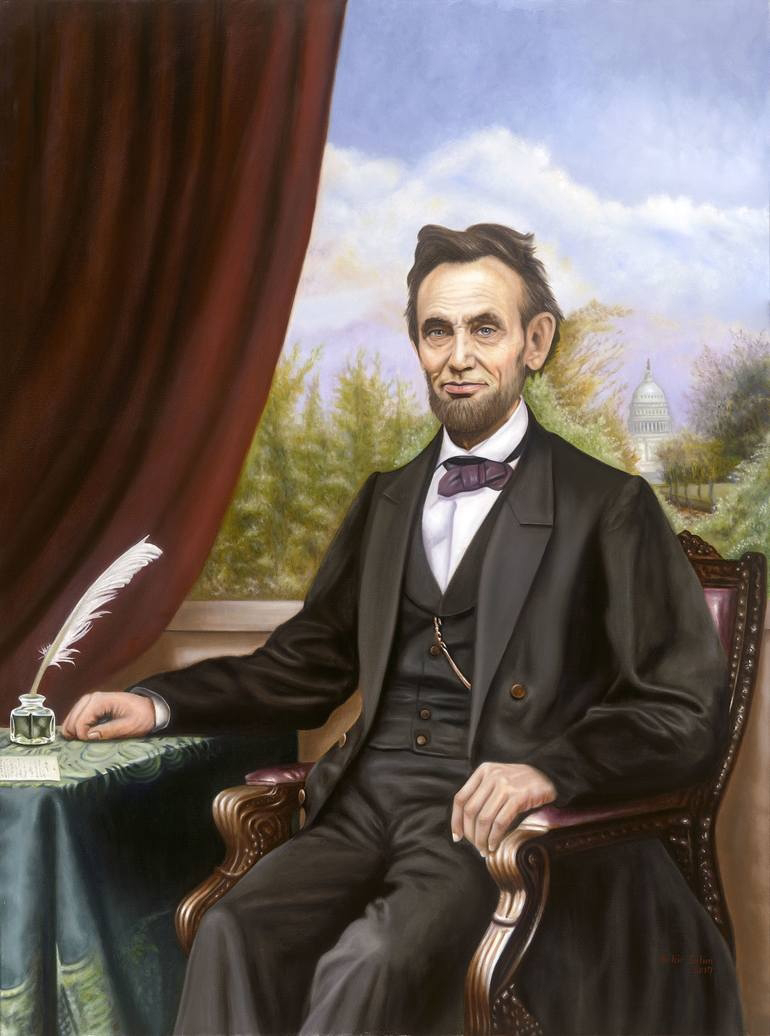ABRAHAM LINCOLN: WHO HAS CAUSED YOU PAINS?
Who Has Caused You Pains?
No one can inflict harm upon you without your consent. It is not the events that befall us that cause suffering; it is our response to them. A single word is enough for those who are wise!
When Abraham Lincoln assumed the presidency of the United States, his father worked as a shoemaker. Naturally, there were individuals with inflated egos who took great offense at the idea that a shoemaker's son could become the president. On his inaugural day, as Abraham Lincoln began delivering his address, a man stood up in the midst of the audience. This man happened to be a wealthy aristocrat. He spoke out, saying, "Mr. Lincoln, do not forget that your father used to make shoes for my family." This remark elicited laughter from the entire Senate, as they believed they had successfully mocked Abraham Lincoln.
However, there are certain individuals made of sterner stuff. Lincoln gazed directly into the man's eyes and responded, "Sir, I am aware that my father used to make shoes for your family, and there may be others here whose shoes were crafted by him. He was a remarkable craftsman. His shoes were not mere footwear; he infused them with his entire being. Let me ask you, do you have any complaints? Because I possess the skill to create shoes myself. If you have any grievances, I can fashion a new pair for you. Yet, to the best of my knowledge, no one has ever complained about my father's shoes. He was a genius, an exceptional creator, and I am immensely proud of him."
The entire Senate was left speechless. They could not fathom the nature of the man before them, Abraham Lincoln. He took pride in the fact that his father executed his craft with such excellence, enthusiasm, passion, and perfection. It mattered not what occupation one pursued; what truly mattered was how one pursued it—voluntarily, with personal vision and love. In doing so, everything one touches turns to gold.
The story of Abraham Lincoln's response to the insult hurled at him during his inauguration carries a powerful message about resilience, self-worth, and the ability to rise above adversity. It teaches us an important lesson about how we can choose to respond to hurtful words or actions from others.
When Lincoln's father's occupation as a shoemaker was used against him to belittle his achievements, Lincoln did not allow himself to be affected by the insult. Instead, he responded with grace and confidence. He acknowledged his father's skill and dedication, highlighting the value and excellence that his father brought to his work.
Lincoln's response demonstrates a remarkable sense of self-assurance and a refusal to let the opinions or judgments of others define him. He recognized that his own worth and success were not diminished by his father's occupation or anyone else's perception of it. By embracing his father's craftsmanship and the pride he felt for his father's work, Lincoln demonstrated the importance of honoring one's roots and embracing the unique qualities that make us who we are.
The story reminds us that we have the power to choose how we react to the words and actions of others. While it is natural to feel hurt or offended when someone tries to undermine us, we have the ability to rise above such negativity. It is not the events themselves that have the power to hurt us, but rather our response to them. We can choose to let hurtful words and actions penetrate our inner selves and weigh us down, or we can choose to remain resilient, confident, and proud of who we are.
The moral of the story is clear: no one can hurt us without our consent. We have the power to control our reactions and to determine our self-worth. Just as ships do not sink because of the water around them but because of the water that gets inside, we should not let external circumstances or negative influences define us or drag us down. Instead, we should focus on our own vision, passion, and love for what we do, and strive to excel in our endeavors.
By embracing this mindset, we can navigate through life's challenges with strength and resilience. We can rise above the opinions and judgments of others, finding fulfillment in our own abilities and the pride we take in our work. Ultimately, it is not the circumstances that determine our success and happiness but our response to them. So let us choose to respond with grace, confidence, and a steadfast belief in our own worth.
Reference





Comments
Post a Comment